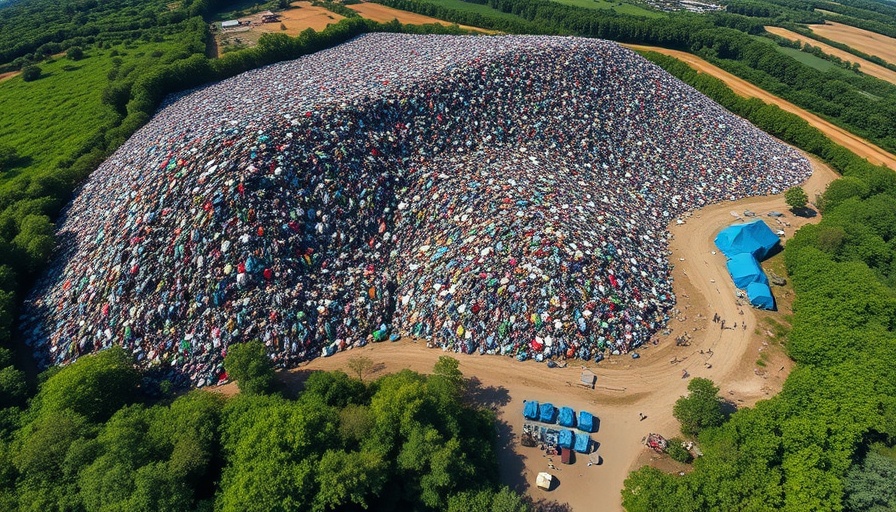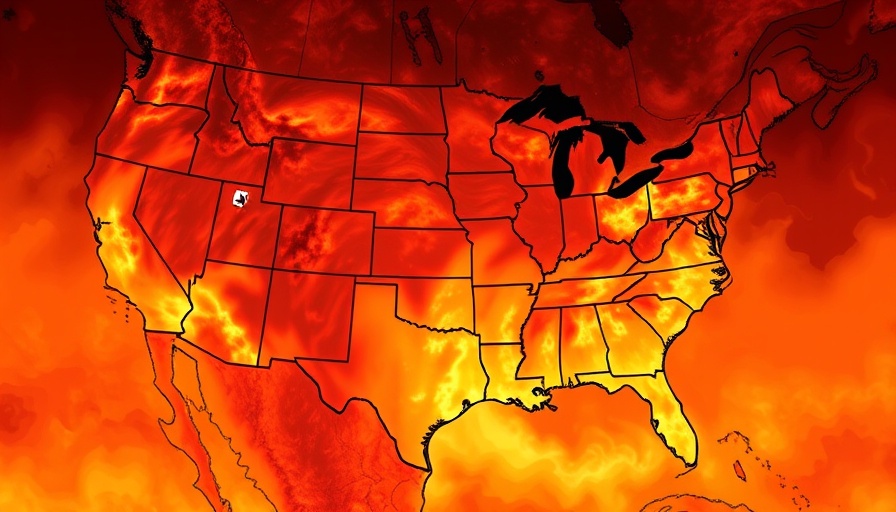
Fast Fashion's Impact on Ghana's Wetlands
A recent investigation has unveiled a troubling reality: discarded clothing from major UK fast fashion brands is ending up in the protected wetlands of Ghana. These findings, brought to light by Unearthed and Greenpeace Africa, highlight the urgent need for sustainable practices in the fashion industry. The Densu Delta Ramsar Site, which is home to diverse wildlife and ecological systems, now faces the threat of pollution from 15 million items of textile waste that flow into Ghana each week.
The Growing Crisis of Textile Waste
UK fast fashion is one of the main culprits, with brands such as Marks & Spencer, H&M, and Primark exporting over 57,000 metric tons of clothing waste to Ghana in 2024 alone. The rapid influx has overwhelmed existing landfill capacities, turning the once manageable waste disposal into a humanitarian and ecological disaster. This year, it was reported that the single landfill in the region exceeded its expected capacity within just five years due to textile overflow.
The Environmental Toll of Clothing Waste
Ghana’s beauty is marred by growing mounds of discarded clothing, primarily made from synthetic fibers, which not only pollutes the land but also harms local wildlife habitats. With nearly 90% of this clothing comprising materials that can take hundreds of years to decompose, the problem is not just about aesthetics; it’s a pressing environmental concern. Local officials have stated that such dumping practices violate international conservation protocols.
From Fast Fashion to Slow Change
The key question is: what can be done to combat this overwhelming tide of textile waste? First and foremost, consumers need to be re-educated on sustainable fashion choices. Buying less, investing in quality, and choosing second-hand clothing can significantly reduce this environmental burden. Additionally, increasing public awareness about the impacts of fast fashion can drive demand for greener practices among retailers.
Looking Ahead: Solutions for Sustainable Fashion
To turn this crisis into an opportunity for change, fashion brands must adopt more sustainable production practices. This includes setting take-back programs, increasing the use of eco-friendly materials, and ensuring that waste is either recycled or disposed of responsibly. We need to see a cultural shift in how society views consumption and waste management.
Embracing Eco-Friendly Materials in Design
As we strive to create beautiful, sustainable living environments, interior designers can play a significant role by advocating for eco-friendly materials and practices that reduce waste. Designing with sustainability in mind doesn't just benefit the environment; it offers a refreshing alternative to traditional aesthetics, setting trends rather than following them.
As we reflect on the impact of our choices, it's crucial for homebuyers, sellers, and investors in the Dumfries market to consider sustainability as part of their decision-making process. Integrating sustainable practices into our lives and homes can create a more positive future for both communities and the planet.
Take a step towards sustainable living today by exploring eco-friendly design options for your home. Choose materials and methods that reflect your commitment to the environment and to creating a beautiful living space.
 Add Row
Add Row  Add
Add 





 Add Row
Add Row  Add
Add 








Write A Comment